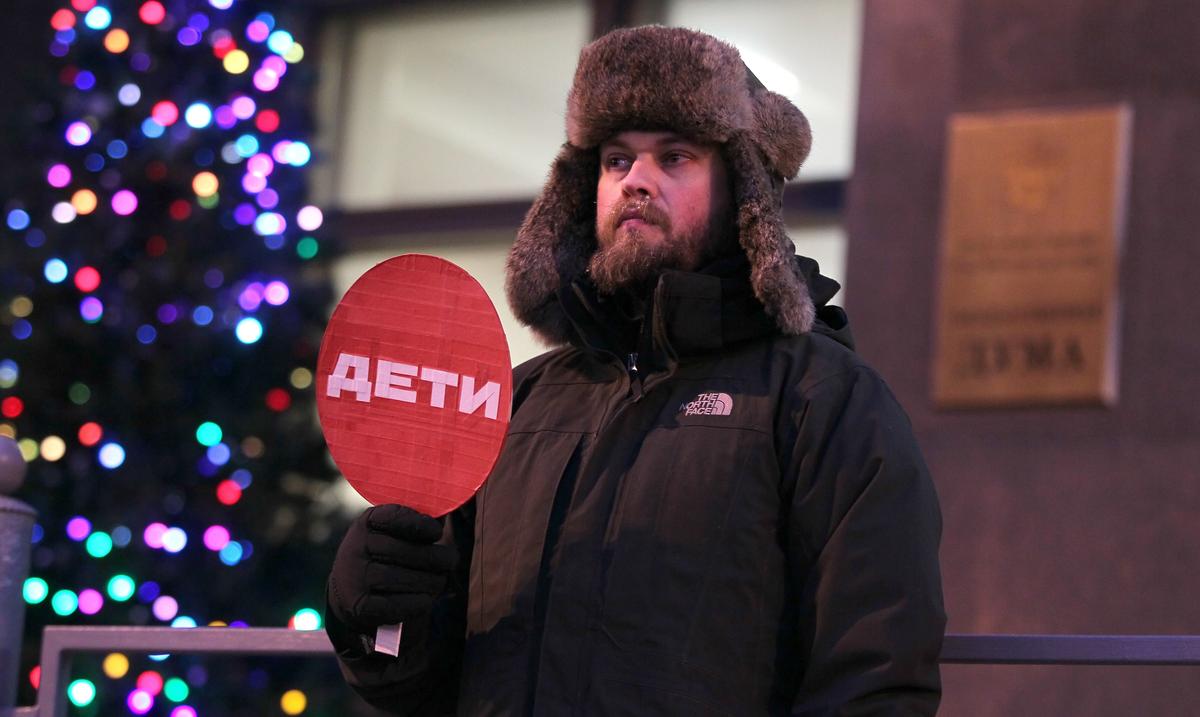
A protester against the Dima Yakovlev Law holds a sign reading ‘Children’ in Moscow, 21 December 2012. EPA/SERGEI ILNITSKY
Data from Russia’s Education Ministry has revealed that not a single Russian orphan was adopted by foreigners last year, investigative news outlet IStories reported on Friday.
In addition, fewer children up for adoption found new families within Russia: in 2024, only 76 of every 100 children placed in orphanages found a new family, the lowest figure for at least 12 years.
Meanwhile, the number of Russian families willing to accept a child from an orphanage has also fallen, IStories wrote, adding that only 40,000 new families were added to a database of potential adoptive parents in 2024, the lowest figure since at least 2010.
Over 100,000 Russian children were adopted by non-Russian families between 1993 and 2023, according to IStories. However, that number began to decline in recent years due to changes in Russian legislation aimed at preventing Russian children being adopted by parents from countries that Moscow deems to be “unfriendly”, as well as the 2012 Dima Yakovlev Law, which specifically banned US citizens from adopting Russian children after a Russian child adopted by an American couple died after he was left in a car for nine hours in 30-degree heat in July 2008.
Prior to 2012, about a quarter of all Russian international adoptions were by families from the US, who provided new homes to between 600 and 1,400 children a year. The ban initially impacted children with disabilities the most, as at the time, Russians were far less willing to adopt children with physical or mental handicaps than Americans.
The Dima Yakovlev law is often described as a “response” to the Magnitsky Act, which the US passed in the same year, and which imposed sanctions on Russian officials involved in the death of tax lawyer Sergey Magnitsky in a Moscow prison in 2009.
Since the war in Ukraine began, the Russian authorities have been actively removing Ukrainian children from the occupied territories and placing them with Russian families. The children have been given Russian citizenship and, in some cases, completely new identities.
